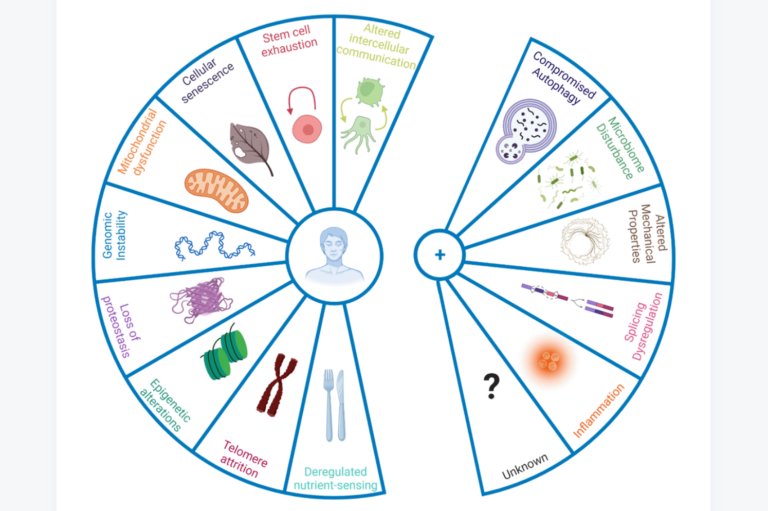Cell Cycle Mechanism as Potential Target to Treat Array of Cancers
Genes & Cancer
September 12, 2022In a recently published Genes & Cancer review paper, researchers discuss the role of CDK4 in cell cycle control, normal development, tumorigenesis, and cancer therapeutics.
—
Scientists and researchers are determined to develop improved cancer treatments by gaining a better understanding of the calamitous process of carcinogenesis. The cell cycle takes place in all organisms; and this series of events is integral not only for normal cell growth, repair and reproduction but also tumorigenesis. Unveiling the intricacies of the cell cycle may pave the way to more effective cancer therapeutics.
Cyclins in the Cell Cycle
“In mammalian cells, cell cycle progression requires a series of events that culminate in the expression and assembly of different CDKs [reviewed in 1, 3, 5].”
Cell cycle progression is tightly regulated by a family of proteins, called cyclins, and their associated cyclin-dependent kinases, or CDKs. However, studies have shown that the majority of CDKs are not critical regulators of the cell cycle. CDK4, along with D-type cyclins, is a key regulator of cell cycle progression through the G1 phase—a point when the cell prepares for DNA synthesis. In normal cells, CDK4 activity is essential for cell proliferation. In cancer cells, CDK4 is often upregulated and overexpressed.
On August 25, 2022, researchers from Icahn School of Medicine at Mount Sinai published a new review paper in Genes & Cancer, entitled, “CDK4: a master regulator of the cell cycle and its role in cancer.” In the paper, the authors discuss the role that CDK4 plays in cell cycle control, normal development and tumorigenesis. They also summarize the current research and therapeutic approaches targeting this important protein.
“This review discusses the role that CDK4 plays in cell cycle control, normal development and tumorigenesis as well as the current status and utility of approved small molecule CDK4/6 inhibitors that are currently being used as cancer therapeutics.”
CDK4 & Tumorigenesis
Upregulated and overexpressed CDK4 leads to uncontrolled cell proliferation and is a major contributor to tumorigenesis. CDK6 is often upregulated in mammalian cancers, as well. In studies where CDK4 or CDK6 were knocked-out in mouse models, researchers found that these proteins have their own unique roles. The phenotype of mice without CDK6 appears mild compared to the phenotype of mice without CDK4. CDK4 null-mutant mice are smaller, infertile, prone to neurological defects, and acquire a diabetic-like phenotype and other abnormalities. This animal model has also shed light on the role that CDK4 plays in cancers located particularly in the mammary gland. The researchers carefully reviewed the known details about this protein and the mechanisms involved with its expression, including its role in normal and tumor cell metabolism.
“Given that oncogenic mutations can result in a tumor cell’s dependence on CDK4, and that CDK4 regulates breast cancer tumor cell stemness [109], these studies suggest that the development of CDK4-specific inhibitors may be beneficial in the treatment of cancer types that rely predominantly on CDK4 expression.”
CDK4/6 Inhibitors
CDK4/6 inhibitors are currently being developed as drug candidates in cancer treatments. However, there are still many unanswered questions about the best method of targeting CDK4 in cancer cells. This review paper includes a number of approved small molecule CDK4/6 inhibitors, biomarkers of CDK4/6 inhibitor response, toxicities associated with CDK4/6 inhibitors, the use of CDK4/6 inhibitors as modulators of anti-tumor and immune responses, mechanisms of resistance to CDK4/6 inhibitors, mechanisms of action of CDK4/6 inhibitors, and Proteolysis Targeted Chimeras (PROTACs). PROTACs are a promising new class of drug candidates that use bifunctional molecules to target and degrade an oncoprotein. This technology is currently being explored as a means to target CDK4 and CDK6. The researchers also discussed the use of CDK4 inhibitors in a non-therapeutic role to prevent chemotherapy-induced depletion of hematopoietic stem cells.
“The approval of 3 CDK4/6 inhibitors as treatments for ER+ breast cancer has paved the way for ongoing clinical studies evaluating the utility of these inhibitors in combination with those of other signaling pathways (such as but not limited to BRAF, PI3K and MEK) in multiple tumor types that exhibit reliance on CYCLIN D1/CDK4/RB or other components of the cell cycle such as p16 and p27.”
Conclusion
CDK4/CDK6 inhibitors are a promising new class of cancer therapeutics with the potential to target a wide variety of tumor types. The authors of this paper shed light on the role of CDK4 in the cell cycle, the role of CDK4 in cancer, approved CDK4/CDK6 inhibitors, and current clinical trials testing new potential CDK4/CDK6 inhibitors. While much remains to be learned about the best methods of targeting CDK4 in cancer cells, the potential for these new drugs appears promising.
“The success of these trials, as well as understanding the mechanisms that drive resistance to these inhibitors, should provide an answer as to whether selective inhibitors of CDK4/6 can provide therapeutic benefit in a broader array of cancers.”
Click here to read the full review paper, published by Genes & Cancer.
VISIT GENES & CANCER YOUTUBE CHANNEL FOR MORE VIDEOS
—
Genes & Cancer is an open-access journal that publishes original studies and reviews relevant to all aspects of cancer research, signal transduction and developmental biology. Open-access journals have the power to benefit humanity from the inside out by rapidly disseminating information that may be freely shared with researchers, clinicians, friends, and families around the world.
For media inquiries, please contact media@impactjournals.com.

